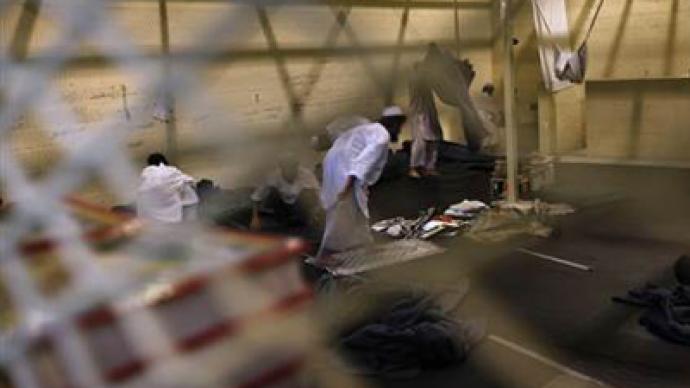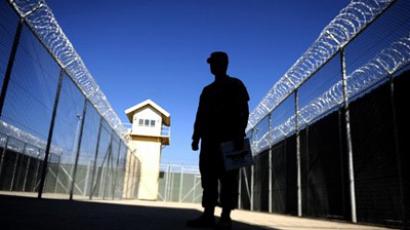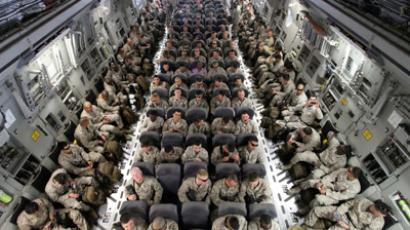US secretly frees high-level Afghan militants as bargaining chip – report

News has emerged that in order to reach a truce in the most restive Afghan provinces, the US has secretly released several dozen high-ranking Afghan militants. In exchange the US gets vague hopes that the militants will not take up arms again.
The secret “strategic release” program is not a part of the US global plan to reach a peace deal with the Taliban. It is only intended to create some immediate tactical gains in particular regions where NATO is unable to ensure security, the Washington Post reports, citing several US officials who spoke on condition of anonymity. The report neither specified the number of prisoners who had been released nor confirmed when exactly the program was established. The negotiations with insurgent commanders or local elders are often the only way to reach peace in some of the Afghan provinces. And the US military commanders are using the detainees of Bagram military prison as bargaining chips in these peace talks, the report says. Bagram detention center is the only US-run military prison in Afghanistan. The military has managed to keep the release deals under the radar because the release from this prison – unlike the notorious Guantanamo Bay – does not require approval from Congress.The released militants are not even forced to break all ties with the Taliban. They are only required to abstain from attacking US forces under the threat of re-detention. In some cases prisoners were released exactly because of their tight ties with insurgent groups, as they were expected to use these connections to maintain peace in the region.The report does not specify whether the militants at large maintain the conditions of their releases or return to attacking US and Afghan troops. But the US officials seem to be ready to take that risk in case the benefits of release could prevail over the reasons for keeping militant detained.“Everyone agrees they are guilty of what they have done and should remain in detention,” one of the officials was cited in the report as saying. “But the benefits outweigh the risks.”Some of the detained militants could never be released under the traditional legal system for military prisoners, but US officials often choose to bypass the protocol.All releases are reportedly approved directly by the top US military commander and top military lawyer in Afghanistan, who are weighing the value of the tradeoff before making a decision. Promises of a decrease of violence are pretty much the only thing the US gets in exchange for the militants’ release.Currently there are about 3,000 detainees at Bagram and most of them are suspected Taliban and Al-Qaeda militants who are being held without any legal cases against them. The US is expected to transfer control of the prison to Afghan authorities in six months’ time. In March officials from the US and Afghanistan signed the contract detailing the specifics of the transfer.The United States have been struggling to conduct peace talks with the Taliban during the whole decade-long campaign in Afghanistan without any significant success. Barack Obama though said last week that many members of the group had indicated “an interest in reconciliation” and a “path to peace in set before them.” Last month officials from Pakistan, Afghanistan and the US discussed ways to provide safe passage to those militants who decided to cut their links with the Taliban.














